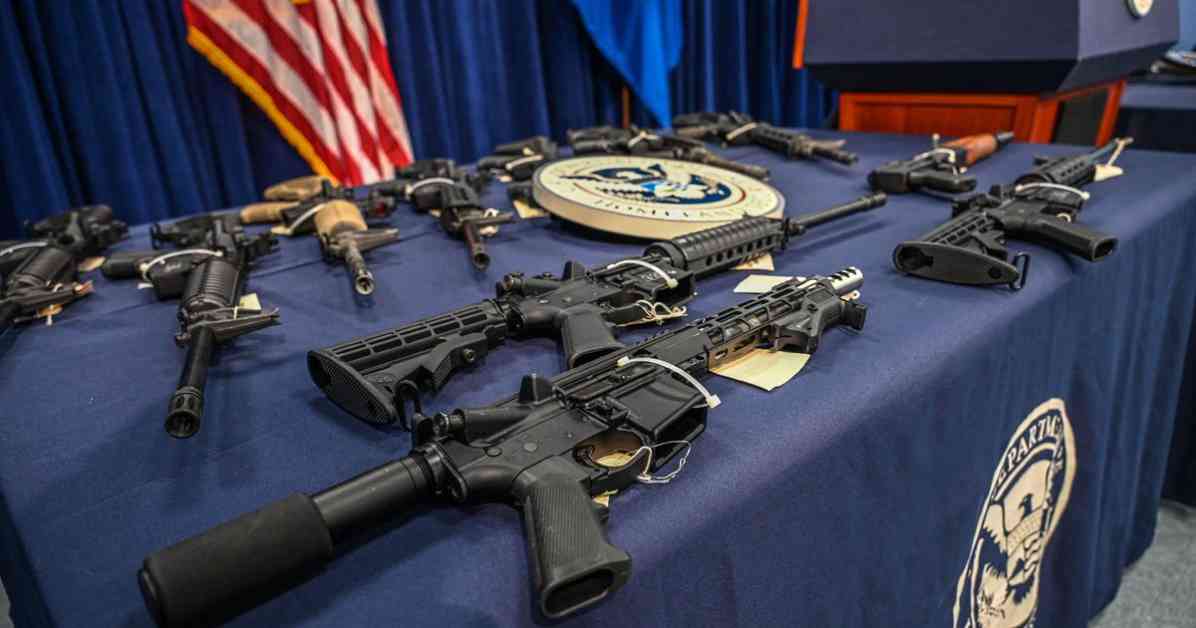The surge of guns and ammunition flowing from the United States to Latin America and the Caribbean has been a major concern for authorities. This influx of firearms has been fueling conflict in regions that are already struggling with violence and unrest. A recent incident involving U.S.-based airlines being targeted by gunfire while flying over Haiti’s airspace has brought attention to the issue. Haiti, lacking domestic firearms manufacturing capacity, has become a hotspot for weapons sourced from the U.S.
A new report from the research organization Small Arms Survey has revealed a significant increase in firearm shipments seized en route from the U.S. to the Caribbean and Latin America since 2016. The report highlights the fact that traffickers in the U.S. are a major source of illicit weapons in the region, posing a serious security threat. These findings are based on border seizure data obtained through public records requests, indicating a growing problem that needs to be addressed urgently.
The black market for American guns and ammunition has long been established as a key source of weapons that fuel violence and humanitarian crises in countries like Mexico and Haiti. A previous investigation found that up to a million firearms are smuggled across the border annually, including military-grade weapons. The flow of illicit firearms from the U.S. is a major concern not only in Mexico but also across the Caribbean. Reports show that a significant portion of firearms recovered in Caribbean nations can be traced back to the U.S., with states like Florida, Georgia, and Texas being major hubs for these weapons.
The latest findings from the Small Arms Survey point to an increase in rifles seized as a percentage of all interdicted firearms. The majority of rifles seized were AK- and AR-style rifles, with high-capacity magazines capable of holding more than 10 rounds. This trend is alarming and underscores the need for stricter regulations and enforcement to curb the flow of illicit firearms into the region.
Overall, the issue of gun trafficking from the U.S. to Latin America and the Caribbean is a complex and multifaceted problem that requires a coordinated effort from both domestic and international authorities to address. The increasing demand for illicit firearms poses a significant security threat to the region, and urgent action is needed to prevent further escalation of violence and conflict.























